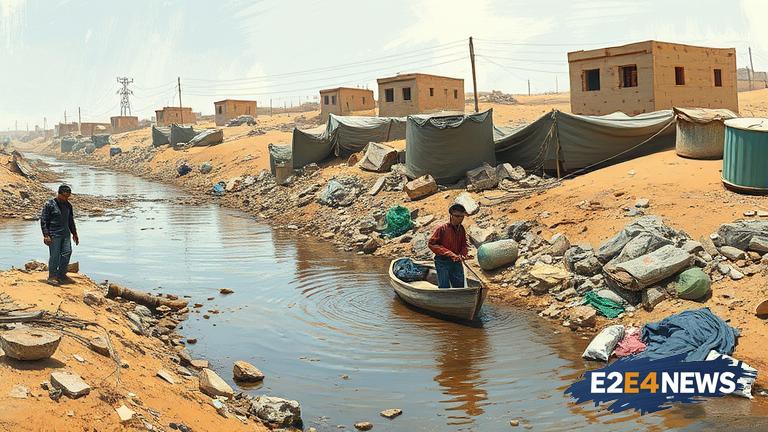The Gaza Strip is facing a severe water crisis after a deadly Israeli strike damaged the region’s infrastructure, leaving thousands of people without access to clean drinking water. The strike, which occurred on a recent day, targeted a key water treatment plant, causing significant damage and disrupting the supply of water to homes, hospitals, and other essential facilities. As a result, Gazans are struggling to access even the most basic necessities, with many forced to rely on contaminated water sources or expensive bottled water. The situation is particularly dire for vulnerable populations, including children, the elderly, and those with pre-existing medical conditions. The lack of access to clean water has also led to a significant increase in water-borne illnesses, further exacerbating the humanitarian crisis. The Gaza Strip has long struggled with water scarcity, but the recent strike has pushed the situation to a critical point. The region’s water infrastructure is in disarray, with many pipes and treatment plants damaged or destroyed. The Israeli military has claimed that the strike was targeted at Hamas militants, but the damage to civilian infrastructure has raised concerns about the disproportionate impact on innocent civilians. The international community has called for an immediate ceasefire and for Israel to allow humanitarian aid to reach the affected areas. The United Nations has warned of a potential humanitarian catastrophe if the situation is not addressed urgently. Gazans are calling for an end to the blockade and for the international community to take action to address the crisis. The water crisis is just one aspect of the broader humanitarian crisis in Gaza, which has been exacerbated by years of conflict, poverty, and isolation. The situation is a stark reminder of the need for a lasting and comprehensive peace agreement that addresses the underlying causes of the conflict. The Gaza Strip is one of the most densely populated places on earth, with over 2 million people living in a region roughly the size of Philadelphia. The region has been under Israeli blockade since 2007, which has severely limited the movement of people and goods. The blockade has had a devastating impact on the economy and living standards, with high levels of unemployment and poverty. The water crisis is just the latest example of the humanitarian consequences of the conflict, and highlights the need for urgent action to address the crisis and prevent further suffering. The international community must take immediate action to address the crisis, including providing emergency aid and working towards a lasting peace agreement. The people of Gaza deserve access to basic necessities like clean water, and it is the responsibility of the international community to ensure that their rights are protected.
